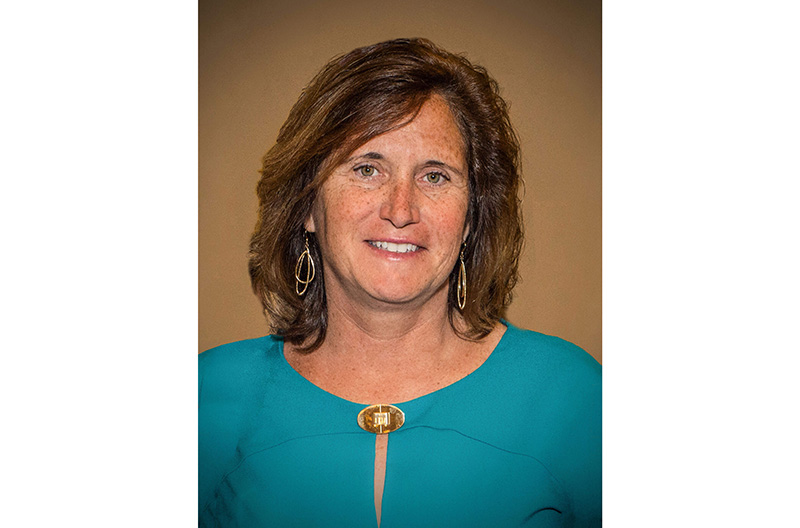Group also tracking gubernatorial, other races in November election
by Eric Pereira / content creator
Changes to grocery store checkout, specifically plastic bags, soon will be coming to the Garden State, according to Linda Doherty, president and CEO of the Trenton-based New Jersey Food Council.
In May, the state will be banning single-use plastic and paper bags in retail food stores.
“[Our] members were vital in ensuring this law crossed the finish line. Now, New Jersey has a uniform, statewide policy on reusable bags rather than a patchwork of municipal ordinances creating chaos,” she said.
“One of the most monumental bills to impact our business model passed earlier this year and there is an 18-month runway to implement the country’s most comprehensive plastic law on disposal shopping bags and polystyrene containers.”
NJFC partnered with state agencies to create the Bag Up NJ campaign, a public education and outreach effort to ensure businesses are in compliance with the rollout and the public is prepared.
“Our members are committed to doing our part and taking a sustainable approach to lead when it comes to reusable bags,” Doherty said.
New Jersey’s state legislature is on break for the November election cycle.
“While it is considered an off-election year around the country, that is not the case [here],” Doherty said. “We have a gubernatorial election, and all 120 seats are up for grabs in the state legislature.
“After the November election is finalized, there will be a lame duck period until the full session ends in mid-January…we anticipate significant activity on labor bills and other crucial issues that may not be favorable to business.”
Currently, the Food Council Committee for Good Government, the council’s political action committee, is engaged in supporting candidates who support its agenda.
“We continue to educate legislators on the economic benefits of modernizing liquor licensing laws,” Doherty said. “The two-license limit for an owner or entity is an antiquated restriction and stifles economic growth and tax revenues.
“Also, we raise strong food safety concerns with a proposal which establishes recycled content requirements for rigid plastic containers, bottles and bags.”
Labor and supply chain
As is the case with many other state grocery industry associations, labor shortage is the No. 1 issue for the NJFC as well.
“Members are down on average a third of their workforce at store level,” Doherty said. “In 2022, NJFC will focus on creating a campaign to highlight the benefits and career opportunities in our workforce in such areas of logistics, data, analytics, social media, technology and culinary arts. We need to let potential workers know the disruption in our business model is creating high paying jobs and career advancement.”
NJFC still is seeing some scattered outages in paper products and categories such as sport drinks and pasta, Doherty said.
“Customers may see an empty shelf because their favorite item is out of stock, but they still have other alternatives in the category,” she said.
These supply chain disruptions paired with COVID restrictions also have required flexibility with NJFC events. Just this week, the council had to move its in-person Good Government Breakfast to a virtual format.
“While we had an overwhelming response from legislators and government leaders accepting our invitation to join us…our members are overwhelmed with restrictions, labor shortages and supply chain challenges that attending in person was problematic,” Doherty explained. “Instead, we recorded the presentations to our honorees and videotaped our two gubernatorial candidates to be released later in October.”
In other news, New Jersey is one of the last states to be rolling out eWIC, with the pilot project just starting in Mercer County. In October, Monmouth and Middlesex counties come on board and the rest of the state will come online in the first quarter of 2022.
“This has been a long time coming…we, and our members, have been working closely with our government partners to ensure a smooth and successful transition to this platform,” Doherty said. “We have waited for more than a decade for New Jersey to implement this program and we are thrilled [it has arrived].”
The council’s membership includes more 1,400 grocery, food and conveniences stores and about 400 food suppliers and service companies. It represents a $138 billion food distribution industry that employees some 200,000 workers and feeds more than 9 million people a day.
“Members have embraced the value proposition of our importance during this pandemic and continue to depend on NJFC to serve as their top resource and liaison with government leaders and state agencies during this critical and uncertain period of time,” Doherty said.
In other news, NJFC recently hosted their “Data & Digital” Trade Relations Conference. Click here to read the story.

